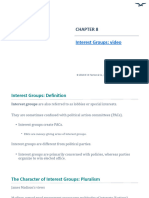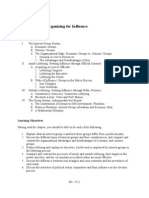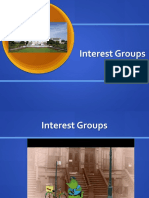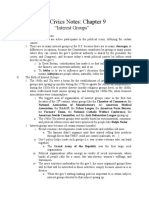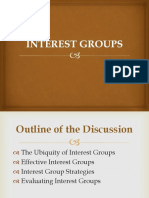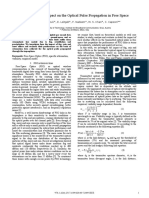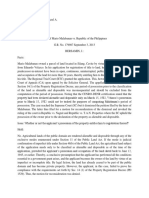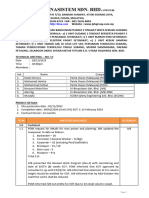0% found this document useful (0 votes)
91 views22 pagesInterest Groups: Organizing For Influence
This document discusses interest groups and their role in influencing policymaking. It defines interest groups as organizations that promote shared political interests. There are two main types: economic groups like businesses and unions, and citizens groups focused on noneconomic causes like the environment.
Interest groups use various strategies to lobby officials, including inside lobbying by directly engaging with legislators, executives, and courts, and outside lobbying through grassroots organizing. Economic groups generally find it easier to work together due to shared economic goals, while citizens groups face more challenges due to diverse noneconomic interests. Interest groups play an important role in representing public interests to government officials.
Uploaded by
Diego VásquezCopyright
© © All Rights Reserved
We take content rights seriously. If you suspect this is your content, claim it here.
Available Formats
Download as PPTX, PDF, TXT or read online on Scribd
0% found this document useful (0 votes)
91 views22 pagesInterest Groups: Organizing For Influence
This document discusses interest groups and their role in influencing policymaking. It defines interest groups as organizations that promote shared political interests. There are two main types: economic groups like businesses and unions, and citizens groups focused on noneconomic causes like the environment.
Interest groups use various strategies to lobby officials, including inside lobbying by directly engaging with legislators, executives, and courts, and outside lobbying through grassroots organizing. Economic groups generally find it easier to work together due to shared economic goals, while citizens groups face more challenges due to diverse noneconomic interests. Interest groups play an important role in representing public interests to government officials.
Uploaded by
Diego VásquezCopyright
© © All Rights Reserved
We take content rights seriously. If you suspect this is your content, claim it here.
Available Formats
Download as PPTX, PDF, TXT or read online on Scribd
/ 22


